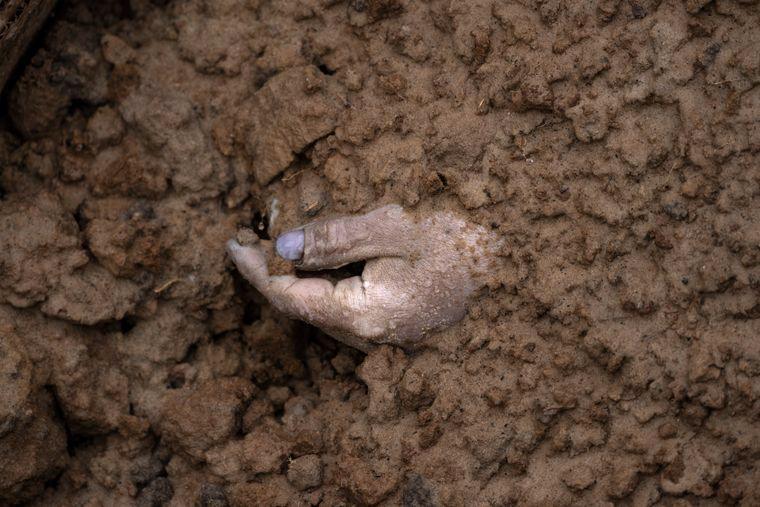russia responsible for direct and public incitement to commit genocide in Ukraine – legal analysis by 30 international experts
 Read in Google News!
Read in Google News! 
russia is responsible for direct and public incitement to commit genocide, and a pattern of atrocities from which an inference of intent to destroy the Ukrainian national group in part can be drawn, the new legal analysis signed by more than 30 independent experts concluded.
![]() ……a) High level russian officials and State media commentators repeatedly and publicly deny the existence of a distinct Ukrainian identity, implying that those who self-identify as Ukrainian threaten the unity of russia or are Nazis, and are therefore deserving of punishment. Denial of the existence of protected groups is a specific indicator of genocide under the United Nations guide to assessing the risk of mass atrocities.
……a) High level russian officials and State media commentators repeatedly and publicly deny the existence of a distinct Ukrainian identity, implying that those who self-identify as Ukrainian threaten the unity of russia or are Nazis, and are therefore deserving of punishment. Denial of the existence of protected groups is a specific indicator of genocide under the United Nations guide to assessing the risk of mass atrocities.
b) “Accusation in a mirror” is a powerful, historically recurring form of incitement to genocide. A perpetrator accuses the targeted group of planning, or having committed, atrocities like those the speaker envisions against them, framing the putative victims as an existential threat and making violence against them seem defensive and necessary. russian President Vladimir putin and russian officials did exactly this, making the utterly false claim that Ukraine had committed genocide or exterminated the civilian population in russian-backed separatist-controlled areas, as their pretext for
invading Ukraine.
c) russian officials and State media repeatedly invoke “denazification” as one of the main goals of the invasion and have broadly described Ukrainians as subhuman [“zombified,” “bestial,” or “subordinate”], diseased or contaminated [“scum,” “filth,” “disorder”] or existential threats and the epitome of evil [“Nazism,” “Hitler youth,” “Third Reich”]. This rhetoric is used to portray a substantial segment or an entire generation of Ukrainians as Nazis and mortal enemies, rendering them legitimate or necessary targets for destruction.
d) Construction of Ukrainians as an Existential Threat. In the russian context, the State orchestrated incitement campaign overtly links the current invasion to the Soviet Union’s existential battles with Nazi Germany in World War II, amplifying the propaganda’s impact on the russian public to commit or condone mass atrocities. On April 5, 2022, Dmitry Medvedev, current Deputy Chair of the russian Security Council, posted: “having transformed itself into the Third Reich … Ukraine will suffer the same fate … what it deserves! These tasks cannot be completed instantaneously. And they will not only be decided on battlefields.” The day before the widely celebrated Victory Day, marking the Soviet victory over Nazi Germany, President putin sent a Telegram to russian-backed separatists claiming russians are fighting “for the liberation of their native land from Nazi filth,” vowing that “victory will be ours, like in 1945.” The russian Orthodox Church has publicly reinforced this historical parallel and praised russia’s fight against Nazis.
e) Conditioning the russian Audience to Commit or Condone Atrocities. The russian Federation authorities have denied atrocities committed by its forces and rewarded 2 soldiers suspected of mass killing in Ukraine, enabling soldiers to commit, and the russian public to condone, further atrocities. These authorities are able to directly incite the public by funnelling and amplifying their propaganda through a controlled media landscape and extreme censorship around the war. The purveyors of incitement propaganda are all highly influential political, religious, and State-run media figures, including President putin. There is mounting evidence that russian soldiers have internalized and are responding to the State propaganda campaign by echoing its content while committing atrocities. Reported statements by soldiers include: threats to rape “every Nazi whore,” “hunting Nazis,” “we will liberate you from Nazis,” “we’re here to cleanse you from the dirt” (following a public execution), among others.
What distinguishes genocide from other international crimes is the “intent to destroy, in whole or in part, [a protected group], as such.” This intent can be attributed to a State through evidence of a general plan (derived from official statements, documents, or policy) or can be inferred from a systematic pattern of atrocities targeting the protected group. The five genocidal acts — killing, causing serious harm, deliberately inflicting physically destructive conditions of life, imposing birth prevention measures, and forcibly transferring children to another group — can also point towards genocidal intent when viewed in their totality.

